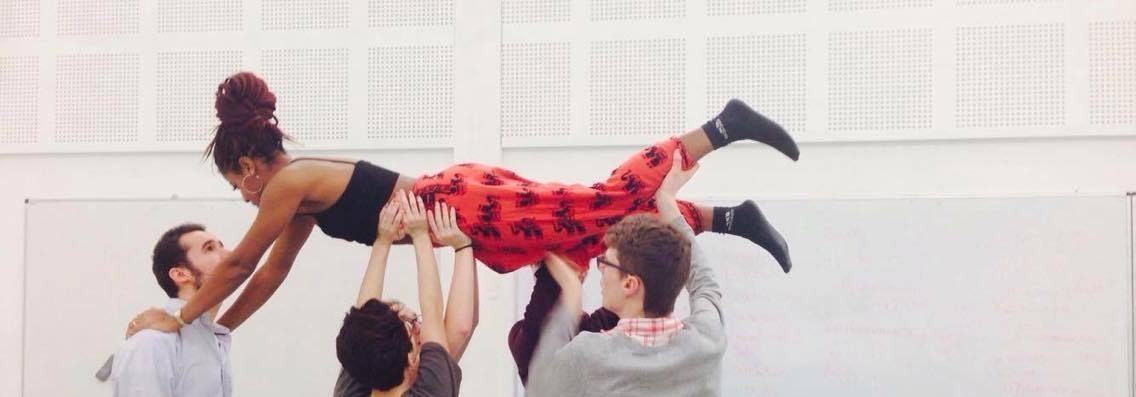Mind The Gap: The spaces yet to be carved
We all know that the Arts and Culture industry is disproportionately white, but for Hope Barker and Ella McLeod, the same can be said of the Warwick Drama Collective (DC). I sat down with them to discuss their project Mind The Gap, its inspirations, aims, setbacks and future.
Having already planned to stage Fewer Emergencies, funding for which was rejected twice by the DC, Hope told me that “the most important part of our vision became the fact that we wanted it to reflect society, because it’s about the issues society faces as a whole”. Similarly, Ella was hoping to stage Othello as “a more racially diverse play within Warwick Drama”; eventually, both plays secured funding from IATL.
I could list to you who all the people of colour are in Warwick Drama, and that’s the problem.
Hope and Ella decided to stage both plays under the Mind The Gap umbrella due to their mutual disillusionment with Warwick Drama. Ella told me that she “felt very isolated and very out of place within that group (Warwick Drama); I could list to you who all the people of colour are in Warwick Drama, and that’s the problem”. Hope’s involvement in Fallen Petals, a production featuring only female actors of colour, and seeing the many talented auditionees, made her ask “why aren’t these people auditioning for anything else?”
“It’s not active racism in Warwick Drama”, Hope explains, “it’s apathy towards issues which don’t directly affect you.” Ella added that “For some reason, people treated the idea of finding black talent in Warwick as so… ‘well, how would we even try?’ And they used this as an excuse not to try. The lack of diversity is alienating, and I can understand why people of colour would feel like drama here isn’t a space for them.” Hope added that “we want to get to a place where having bodies of colour on-stage doesn’t need to be a statement – but to achieve that, we have to first make it a statement. It’s about making a change for the future, so that diversity won’t have to be a statement in the future.”
It’s not active racism in Warwick Drama, it’s apathy towards issues which don’t directly affect you.
Sadly, the project’s plans for this term have been delayed until the start of next term. “Part of it was timing”, says Hope, “but when we came to the auditions it was quite a shock. We cut down to multi-roles due to a lack of signups, but when it came to recalls we had a room of seven white people. We didn’t want to give someone a role just because they were a person of colour – that would have been even worse. It was important not to put on a play about society with an all-white cast, because that’s not society.”
Ella also told me about the mockery her Othello signups received before her auditions. “We noticed a signup on the doodle poll – someone had put in Aki and Pawpaw who are a Nigerian acting and comedy duo. To me, it seemed racist.” But this setback has only made them stronger. “I refuse to see another year of Warwick Drama go by with so little diversity”, said Ella; “it’s really difficult and I don’t want anyone else to have to experience it.”
We didn’t want to give someone a role just because they were a person of colour – that would have been even worse. It was important not to put on a play about society with an all-white cast, because that’s not society
Mind The Gap isn’t over – in fact, its launch party will be later this term. “We’re putting on a scratch night later this term” explains Hope, “and we’re going to completely relaunch the project at freshers late this year. I think if this setback has shown us anything, it’s that we need to try harder and keep going.”
The challenges faced by Ella and Hope in this project aren’t challenges confined to the Warwick Drama scene, though. “In my two years studying here”, Ella tells me, “I’ve only looked at one black British playwright. I think Warwick Drama is very much a microcosm of the arts and society as a whole.”
This isn’t a problem for people of colour, it’s a human colour – we’re all people. We’re not over! Watch this space!
Ultimately, Hope tells me, this project is about “recognising that another person is different to you but you inhabit the same sphere, so it’s minding that gap, not appropriating their story and taking their culture, but appreciating it as much as you appreciate your own.” Ella adds that it’s about “appreciating culture for what it is, not trying to assimilate it or push something else onto it. Just because someone is different, doesn’t mean they need to be separate.” They close by telling me that “this isn’t a problem for people of colour, it’s a human colour – we’re all people. We’re not over! Watch this space!”

Comments (1)
I don’t agree that
http://www.lovethesepics.com/2013/02/carved-by-dynamite-massive-founding-fathers-at-mt-rushmore-34-pics/